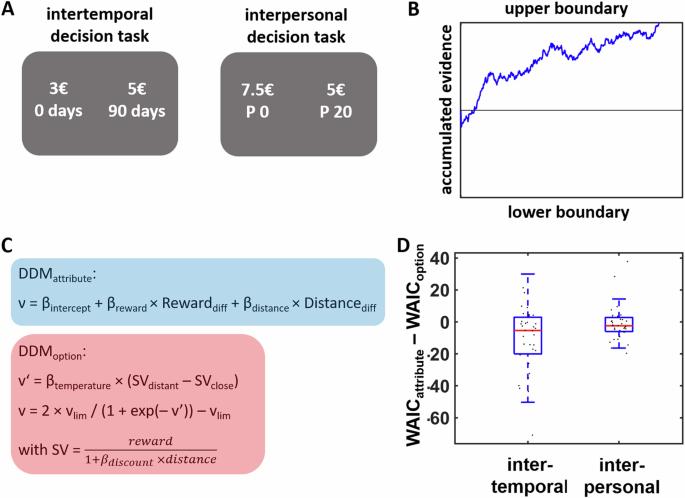Neural reward system reflects individual value comparison strategy in cost-benefit decisions
IF 5.2
1区 生物学
Q1 BIOLOGY
引用次数: 0
Abstract
A core assumption in decision neuroscience is that individuals decide between options by comparing option-specific subjective reward values. Psychological accounts challenge this view and suggest that decisions are better explained by comparisons between choice attributes than by comparisons between option-specific values, casting doubts on the interpretation of activation in the neural reward system as subjective value signals. Here, we provide neuroimaging and pharmacological evidence that value-related neural activity follows the value comparison strategy employed by an individual on the psychological level. Neural model comparisons reveal that activation in the striatum, rather than generally reflecting attribute-wise or option-wise value comparisons, reflects the value comparison strategy that provides the best explanation for an individual’s choice behavior. Strikingly, manipulating activation in the dopaminergic reward system reveals that dopamine antagonism counteracts the engagement in an individual’s dominant value comparison strategy. Together, our findings provide evidence for the biological plausibility of psychological accounts of decision making and emphasize the importance of neural model comparisons to prevent misinterpretations of brain activation. Converging fMRI and pharmacological evidence suggests that the neural reward system encodes utility according to an agent’s preferred values comparison strategy.

神经奖励系统反映了成本效益决策中的个人价值比较策略。
决策神经科学的一个核心假设是,个体通过比较特定选项的主观奖赏价值在不同选项之间做出决策。心理学的观点对这一观点提出了质疑,并认为通过比较选择属性而不是比较特定选项的价值可以更好地解释决策,从而对神经奖赏系统的激活被解释为主观价值信号产生了怀疑。在这里,我们提供了神经影像学和药理学证据,证明与价值相关的神经活动在心理层面上遵循个体所采用的价值比较策略。神经模型比较显示,纹状体的激活不是一般地反映属性方面或选项方面的价值比较,而是反映了为个体选择行为提供最佳解释的价值比较策略。令人震惊的是,操纵多巴胺能奖赏系统的激活会发现,多巴胺拮抗作用会抵消个体主导价值比较策略的参与。总之,我们的研究结果为心理决策的生物学合理性提供了证据,并强调了神经模型比较对防止误读大脑激活的重要性。
本文章由计算机程序翻译,如有差异,请以英文原文为准。
求助全文
约1分钟内获得全文
求助全文
来源期刊

Communications Biology
Medicine-Medicine (miscellaneous)
CiteScore
8.60
自引率
1.70%
发文量
1233
审稿时长
13 weeks
期刊介绍:
Communications Biology is an open access journal from Nature Research publishing high-quality research, reviews and commentary in all areas of the biological sciences. Research papers published by the journal represent significant advances bringing new biological insight to a specialized area of research.
 求助内容:
求助内容: 应助结果提醒方式:
应助结果提醒方式:


